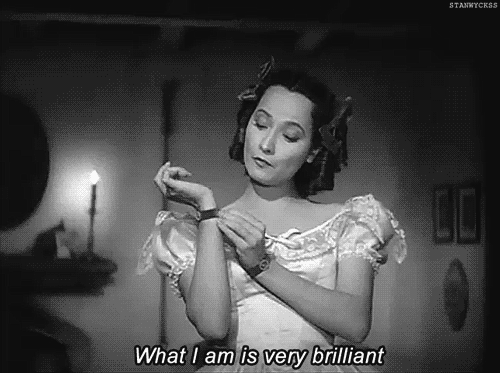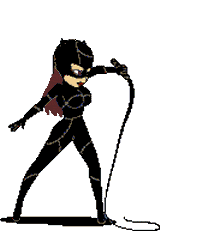 There are a number of reasons I adore studying English, but I never thought one of them would be re-reading the book that almost broke me in high school. Wuthering Heights and I have never really gotten along, to put it lightly. Actually, screw euphemisms. Wuthering Heights, in my sixteen-year-old mind, was the most boring, pretentious, inaccessible, whiny, slow, ridiculous book I’d ever attempted to read.
There are a number of reasons I adore studying English, but I never thought one of them would be re-reading the book that almost broke me in high school. Wuthering Heights and I have never really gotten along, to put it lightly. Actually, screw euphemisms. Wuthering Heights, in my sixteen-year-old mind, was the most boring, pretentious, inaccessible, whiny, slow, ridiculous book I’d ever attempted to read.
As you can imagine, I was far from pleased when I saw that it had been placed – rather innocuously, might I add – on the second-year English reading list, right after my most-hated book of all time, J. M. Coetzee’s Disgrace. (I don’t swear often on my blog, but I’m gonna make an exception. Fuck that book.)
Anyway, one of the joys of studying literature is all the time I waste in the library reading books about the books I’ve just read, or wading through articles upon articles and critical essays upon critical essays that all fixate on the significance of, like, two lines of dialogue in a 600-page text. (Case in point: I read a whole 48-page essay on the significance of the painting in Virginia Woolf’s The Lighthouse. For those of you who don’t know, that painting is an abstract purple blotch surrounded by other abstract blotches.)
In the case of Wuthering Heights, however, it paid off.
Because, by some miracle, I found this gem of an article.
I don’t expect you to read it, but if you’re as much of a feminist dork as I am, do yourself a favour. Kara M. Manning writes like a goddess, truly. She’s everything I aspire to be as an academic, and my god, if I can find just one opportunity in my entire academic career to quote the last line of her article, I’ll be able to die a happy, kickass woman.
Spoiler alert: She mic-drops with this stunner: “The reality is Bronte, refusing to leave off her whip, has made me her bitch.”
Killer, right?
For those of you who didn’t immediately click the link above, eyes gleaming, and read the whole damn thing, the just of Manning’s argument is this: You’ve been reading Wuthering Heights wrong. Or, at least, you think you’ve been reading it correctly, but really, you’re so wrong.
Obviously, Wuthering Heights is a pretty damn complex exploration of toxic relationships, with the sadomasochistic (or S/M in the current discourse surrounding sexuality) bond between Heathcliff and Catherine Earnshaw being one of the most infamous relationships in literature. Yet beyond the dangerous and even erotic interplays of pain and pleasure between Bronte’s characters (which Manning explains far better than I ever could) is the meta-textual invitation extended by the author to engage her readers in the same vein of S/M play.
So basically, the act of reading Wuthering Heights is the equivalent of letting Bronte tie you to a bedpost and whip out her custom-made cat-o’-nine-tails.

At its core, Wuthering Heights as the novel you hold in your hands becomes the setting for S/M play, with Bronte stepping into the role of the sadistic storyteller and her characters the masochists begging her to do her worst. Simply put by an uncredited reviewer of the novel in 1848, “How a human being could have attempted such a book as the present without committing suicide before he had finished a dozen chapters, is a mystery” (qtd. in Manning 50). The characters in Wuthering Heights are tortured – there really is no other word for it. Tortured by their author, who, I can only imagine, sat back in her uncomfortable wooden chair after forcing Catherine to leave Heathcliff for Edgar Linton and released a low sigh of utter contentment.
(But let’s be real here – this was the Victorian era. I’d bet my life on the fact that “her bosom heaved,” or some other equally cringe trope from a historical romance.)
And the readers don’t escape this awkward situation – they “participate as voyeurs eagerly consuming the scenes that she has scripted for her—literally—bound submissives (her characters)” (Manning 62).
According to Manning (62), “The act of reading creates the potential for consensual participation in textual and sexual relationship with the author.” When the modern reader picks up Wuthering Heights, even for the first time, she is likely already familiar with its status as a gut-wrenching love story of pain and loss. Or, more realistically, she is reluctantly willing to wade through pages and pages of what she expects to be boring, monotonous prose and not-nearly-steamy-enough-but-somehow-still-sickening descriptions of the two tortured lovers for a slightly above-average grade (me. That is an accurate description of me). Either way, the reader enters the novel expecting a somewhat painful experience. And she receives a full range of unpleasant emotions, courtesy of Bronte and her trusty whip (perhaps even the same one she never allows six-year-old Catherine to receive as a gift from her father).
But even with all the pain, isn’t the experience of immersing oneself in Bronte’s world ultimately a cathartic one? …Pleasurable, even? I mean, 350,628 five-star ratings on Goodreads doesn’t really suggest otherwise.
So yeah. Puts things in perspective, doesn’t it? And this new information has really opened my eyes to all those very chaste, very conservative people who kept recommending Bronte’s classic to me throughout high school.
Because clearly, if you’ve read Wuthering Heights and even vaguely enjoyed it (which isn’t hard. It’s beautifully written, for all its vomit-worthy lamentations and love stories), you’ve let Bronte fulfill her deepest darkest sadist fantasies through you.
Put simply, Bronte’s made you her bitch.
